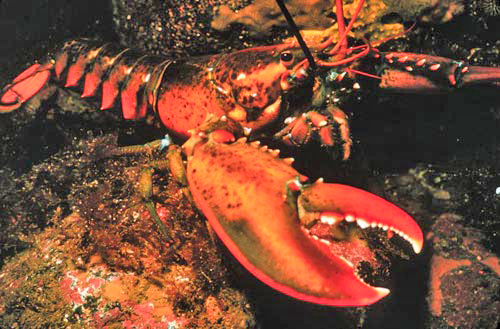PETA’s new Christian outreach division has set its sights on Episcopal lobster dinners as a tradition ripe for reform.
The organization, whose full name is People for the Ethical Treatment of Animals, wrote to Presiding Bishop Michael Curry, asking him to put a stop to lobster dinners in the church, according to the Washington Post.
“Most of us grew up believing that killing lobsters and other animals for food is what must be done, but if we contemplate it, all killing requires conquering, violence, and separating ourselves from the rest of creation,” PETA wrote to the bishop. “God designed humans to be caretakers, not killers.”
The letter cited both the Old and New Testaments and the writer David Foster Wallace, who examined the practice of boiling lobsters alive for consumption in his well-known essay “Consider the Lobster.” PETA described the practice as “cruelty that I know doesn’t reflect the tenets of the Episcopal Church.”
Ben Williamson, a spokesman for PETA, said he didn’t know if there was any particular link between Episcopalians and lobsters, and several Episcopal church leaders whom The Washington Post asked about the connection didn’t have an answer either. But PETA staff noticed a pattern of lobster dinners as church fundraisers, and decided to look into it. They identified 28 Episcopal congregations advertising lobster fundraisers in more than 10 different states.
A spokesperson for PB Curry said that he was on vacation and had no further response to the PETA request. The Washington Post reported that many of its own inquiries to Episcopal Churches advertising lobster dinners went unanswered, although at least one rector was prepared to consider the concerns raised by PETA.
At St. Christopher’s Episcopal Church in Springfield, Va., the Rev. Peter Ackerman said that his church would continue its lobster dinner, but “PETA raises a thoughtful point. I have shared this with our church board in the hopes that we can respond in a way that keeps the annual celebratory dinner gathering intact but also brings forth our awareness and sensitivity to how we interact with God’s creatures.” That sort of reflection, he said, would be in line with the church’s social action activities like offering free physicals and school supplies to local children.
Read more about the link between lobsters, PETA, and the Episcopal Church at the Washington Post.
Featured illustration: By U.S. National Oceanic and Atmospheric – Transferred from lb.wikipedia, Public Domain

